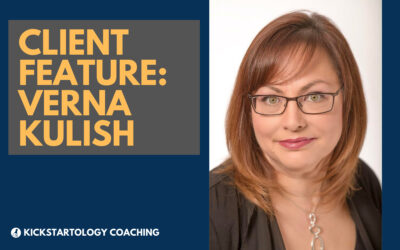The Procrastination Secret
We don’t talk about procrastination enough. Not because it’s rare, but because procrastination feels so good, and we’re not supposed to admit that. Especially not when we know exactly what we’re avoiding, and we still find ourselves “checking something quickly” on our phones like we’re not doing it on purpose.
But if it felt bad, we wouldn’t do it. That’s the truth.
You think you’re avoiding a task, but you’re actually avoiding a feeling. The effort, the decision, the risk of not doing it right. So your brain takes a shortcut. It offers you something easier. And you take it, because the relief is immediate and it works.
Until it doesn’t.
This morning, here’s how that played out:
- I looked at my schedule. I was supposed to write this email.
- I told myself it would be hard because I hadn’t figured out what to say yet.
- That thought created friction.
- I opened a tab and scrolled for a few minutes.
- Because procrastination feels so good in the moment, I felt immediate relief.
It wasn’t the task that created resistance. It was the emotional forecast.
👉 Which Are You? The Six Types of Procrastination
Short-Term Relief, Long-Term Regret
Here’s what I didn’t think about:
- How I’d feel later if the email still wasn’t done
- How much better it would feel to have it sent before 9 a.m.
- How often I convince myself I’ll feel more up to it “later,” even though I never do
The reason procrastination feels so good is that it removes pressure instantly. But that pressure doesn’t go away. It just gets rescheduled.
If we spoke our justifications out loud, they’d collapse instantly:
“I’m going to avoid this email because I want to conserve energy. I won’t think about how I’ll feel when I’m drained later with this still unfinished. I definitely won’t imagine the calm of having it handled early.”
Procrastination breaks down under even mild interrogation. The resistance only works if we don’t look at it directly.
And here’s the worst part. The thing I was avoiding doesn’t require a heroic act. It just asks me to begin.
Coping Has a Cost
When procrastination feels so good, we tell ourselves it’s harmless. But it’s not free. It borrows time without your consent. Those fifteen minutes this morning weren’t about distraction. They were about not having to feel discomfort.
But what if I’d used that time differently?
- Chloe could have had a longer walk
- I could have played that same game later, with smug satisfaction
- I could have read something indulgent in the middle of the day
- I could have started on something I keep telling myself I never have time for
Less reward now. More meaning later. The equation isn’t complicated, it’s just inconvenient.
Fifteen minutes a day doesn’t seem like a lot until you realize it adds up to over sixty hours a year.
And that’s if you’re lying to yourself about it only being fifteen.
When Done Feels Better Than Escape
I spent years trying to procrastinate less. It didn’t work. What finally shifted wasn’t discipline. It was noticing what was actually happening in the moment, and using that to make a different choice.
The Kickstartology tools don’t try to crush the impulse. They help you catch it. They show you what you’re trading away and remind you that the thing you think you’re avoiding might not be that bad. Sometimes it’s just five minutes of uncertainty that your brain dressed up as danger.
Eventually, you stop chasing relief and start creating it on purpose. You stop defaulting to the escape hatch. You stop pretending you don’t care.
You already know why procrastination feels so good.
But what is it costing you?
Exactly.
P.S. If you want some help figuring out the next part, book a free coaching exploration call. We’ll talk about what’s going on and whether group coaching or 1-on-1 coaching fits. No pressure. Just clarity.
Not ready to talk?
Start with my FREE mini starter course:
KICKSTART: THE FIRST STEP
Make the decision that changes everything else.
Clarity, commitment, and forward motion. Ten minutes a day. Starting now.
Verna Kulish: Kickstartology Client Spotlight
"Put yourself out there and allow yourself to fail so you can learn something." ~Verna Kulish We recently caught up with Kickstartology alum, Content Designer, crafting-whiz and everyone's favourite person to have at a party, Verna Kulish. She came to Kickstartology...
When You Want to Make More Friends
By Toronto Life & Mindset Alignment Coach Stephanie J. MarshallThe Loneliness Taboo It's more taboo to admit that you want more friends than to say you want to find a stranger to hook up with. And that's messed up. Over the last year I've noticed more people...
Using Mindset Tools to Make Time
By Stephanie J. Marshall, Toronto-based Master Alignment Coach Most people who are trying to fix not having enough time are focusing on the wrong things and they keep playing catch up, disappointing themselves, and giving up. Theresa spent years trying to write...







